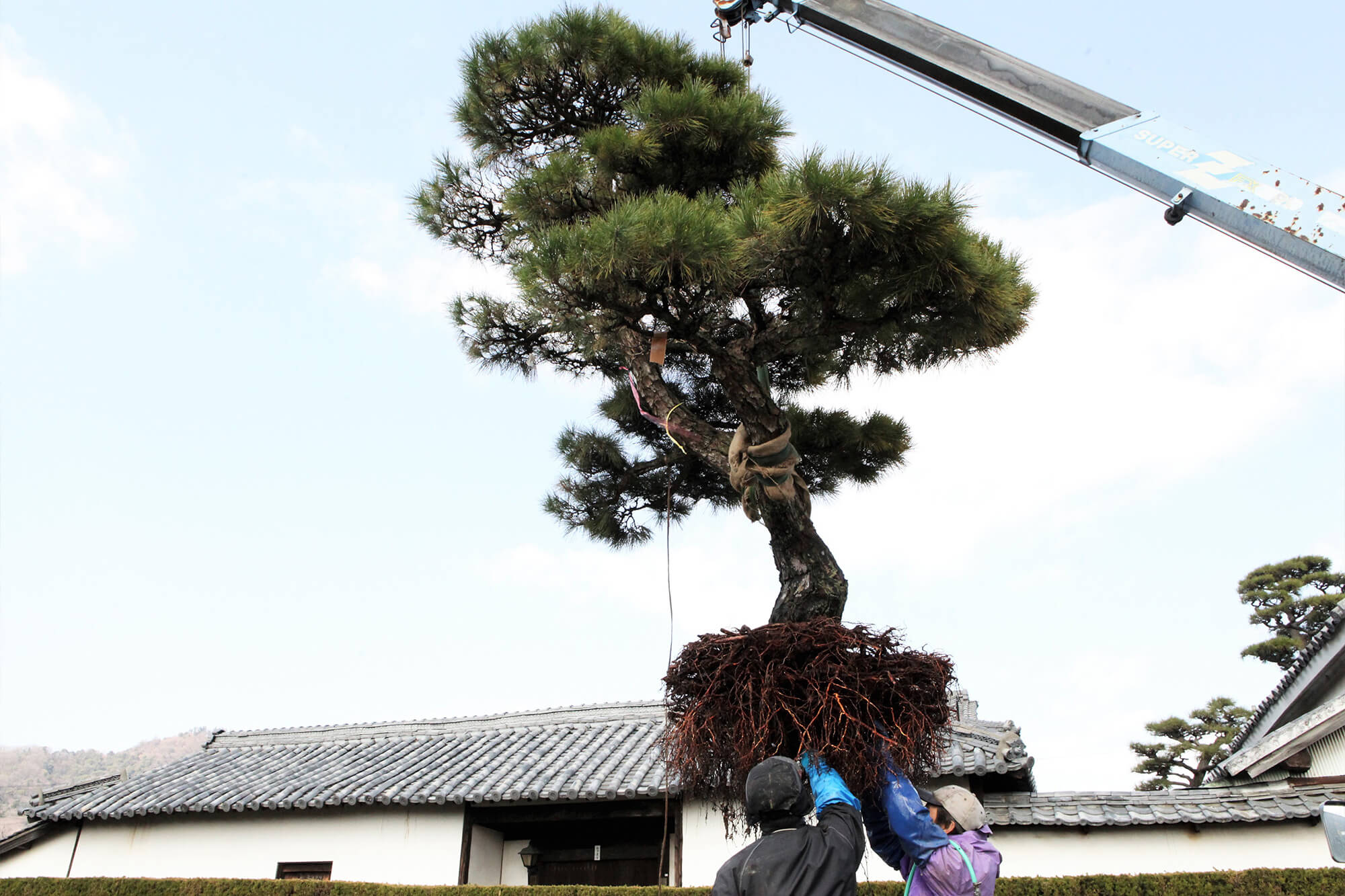Honing skills to make the most of trees and deliver bonsai to enthusiasts worldwideMatsuda Seishoen
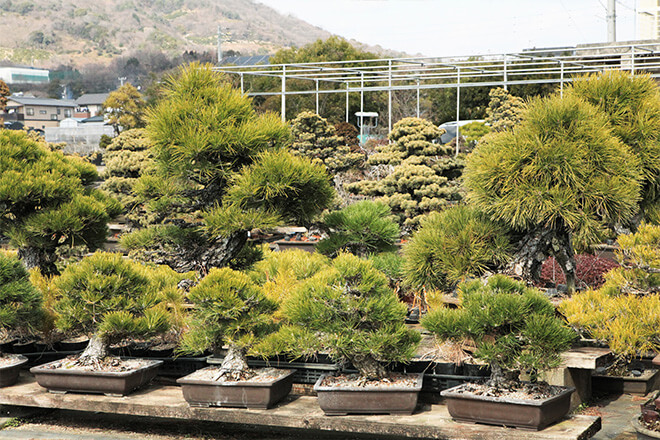
Bolstering exports by applying diverse experiences
Matsuda Seishoen is located in the section of the Kinashi area.
MATSUDA Mitsuo went to Britain to study English after graduating from high school. He enrolled in Kagawa University’s Faculty of Agriculture when he returned home.
“Originally, I did not intend to take over the family business, because I’m the third son in the family,” explains MATSUDA. “But there was a moment when I felt that I could not waste the trees my parents had grown with great care. It caused me to give bonsai a try.”
Matsuda Seishoen handles a wide variety of Japanese black pines, Japanese white pines, and other bonsai, ranging in size from shohin, or small, to daihin, the large bonsai. Visitors are welcome to stroll the garden and admire the bonsai, and to buy the ones that strike their fancy.
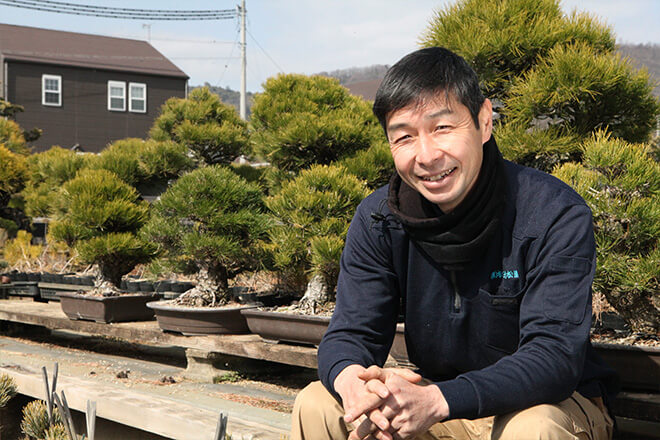
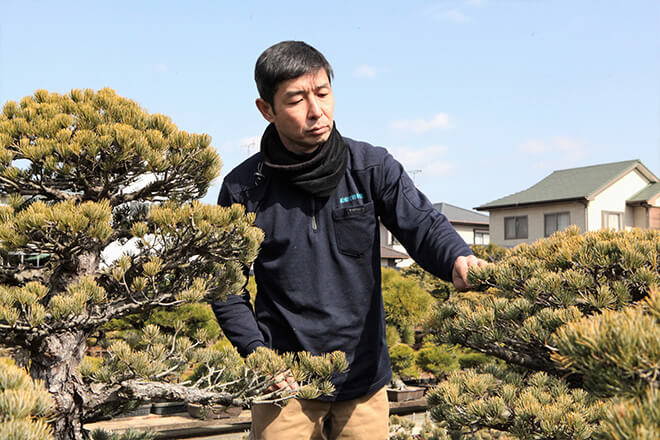
Matsuda Seishoen began exporting bonsai around 1970. Exports to bonsai business operators in overseas markets, including Taiwan, account for the greater part of Matsuda Seishoen’s sales now.
MATSUDA says he wanted to work at a trading company in his junior high school days. He has strengthened the export business, making the most of that youthful wish, his English proficiency, and his accumulated experiences.
His customers are often brokers overseas. The brokers sell bonsais bought from MATSUDA to retail stores. For that reason, MATSUDA never fails to consider the brokers’ business convenience based on his view that they are his business partners. MATSUDA has become a Japan Bonsai Association certified instructor, and is actively traveling to overseas markets to guide brokers in issues connected to the sale of bonsai.
Honing skills to make the most of trees to be shipped overseas, and preserving their beauty
Bonsai exporters must satisfy various conditions. Simply carrying bonsai into a country is banned in some export destinations, under their import restrictions. Soil is often one of those conditions. Exporters perform a process called nearai (washing the roots) to remove soil to ensure that their bonsai have no harmful parasites or extraneous animals or plants. Bonsai shipped overseas with washed roots are returned to soil at their export destinations. This process puts a lot of stress on the trees, and many bonsai die from this practice. The act of returning bonsai with washed roots to soil is called kacchaku. As a bonsai garden specializing in export, Matsuda Seishoen is aiming to achieve the highest kacchaku success rate in Japan.
Bonsai are not the only item Matsuda Seishoen exports. In a farm, a crane lifted a big garden pine for the nearai process. Big trees like this one are shipped with their roots covered by moistened peat moss to prevent them from drying after nearai. Washing the trees roots is an every day activity in the winter, when trees are dormant.
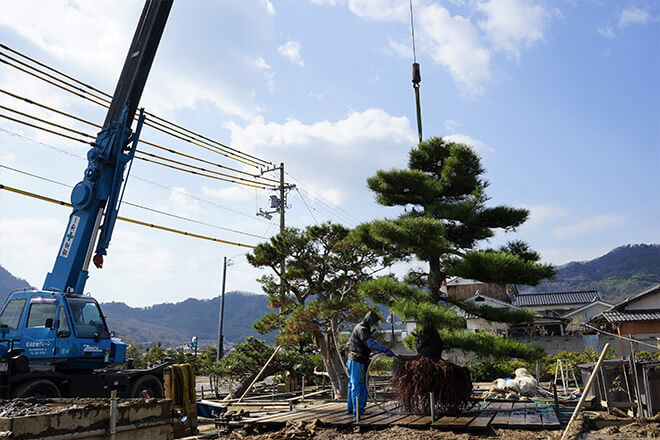
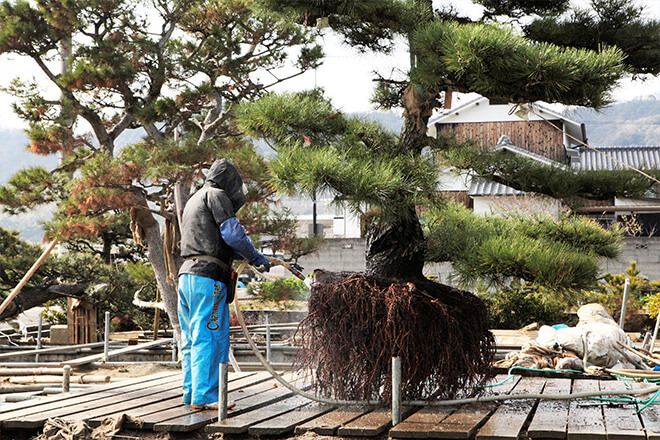
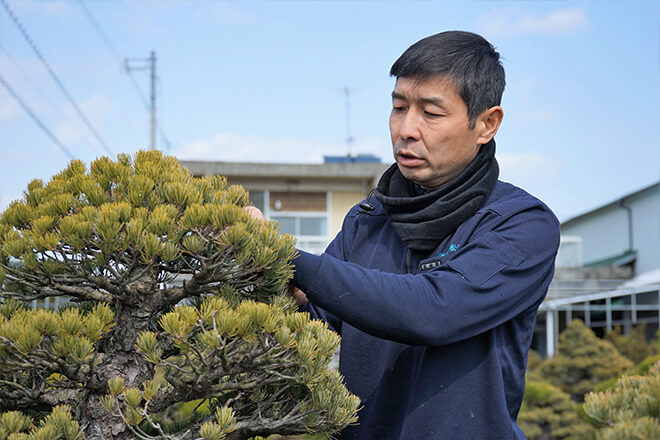
Passing a garden down to the next keeper is possible, but aesthetics are unique to the individual. Growers ability to bring out the best in bonsai depends on their own unique style.
MATSUDA says bonsai growers can reach a certain level by honing their skills, but it takes persistent effort and a developed aesthetic sense to bring out the individuality of the trees beyond that level. According to MATSUDA, the individuality of each grower reveals itself in the individuality of each bonsai, including how the tree is wired, how a pot is selected to match the tree, and the angle at which a tree is planted. The importance of good taste holds true for the intricacies of the business as well.
There were no trees in Matsuda Seishoen’s farms in the days of MATSUDA’s parents. They did their best to plant as many pines as they could. Those pines have grown in the subsequent 40 to 50 years to the great properties they are today. MATSUDA is tending the bonsai his parents have grown affectionately, feeling that it is his mission to ensure that they have a value that reflects this affection. Bonsai that MATSUDA improved with his own sensibilities are spreading their wings in the global world of bonsai.
Matsuda Seishoen
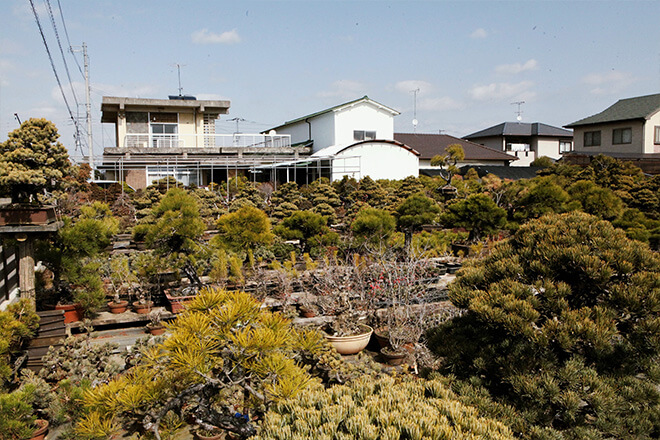
- ADDRESS
- 165-2 Sato, Kinashi-cho, Takamatsu City, Kagawa Prefecture
- TEL
- +81-87-881-2947

